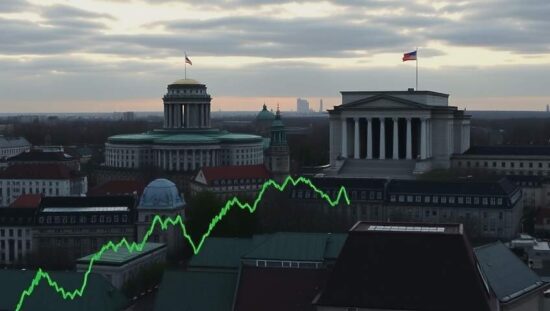The German Dax index opened the new trading week with losses, closing at 23,930 points, a decline of 0.3 percent compared to the previous trading day.
Market analysts at CMC Markets have attributed the decline to a decrease in buying interest in the Dax, a trend that began in the second half of the previous week. According to Jochen Stanzl, the chief market analyst at CMC Markets, the Dax may take some time to break through the 24,000-point mark.
The index is also entering a seasonal phase of weakness that is expected to last until October, a development that could be tempered by the still relatively optimistic market sentiment.
Meanwhile, the European Central Bank is expected to cut interest rates for the last time in this cycle and then adopt a more cautious approach due to uncertainty over the economic and inflation outlook.
However, for Frankfurt-based investors, the real driver of market movements is not the fine-tuning of monetary policy, but rather the fiscal policy measures of the new German government, particularly the planned investments in energy, infrastructure and defense, which could boost economic growth.
The euro was stronger against the US dollar, with one euro equivalent to 1.1433 US dollars and one dollar worth 0.8747 euros.
Gold prices surged, with one ounce of fine gold selling for 3,373 US dollars, a 2.5 percent increase, equivalent to 94.85 euros per gram.
The price of Brent crude oil also rose significantly, with one barrel of the North Sea variety costing 64.63 US dollars, a 3.0 percent increase from the previous trading day.





